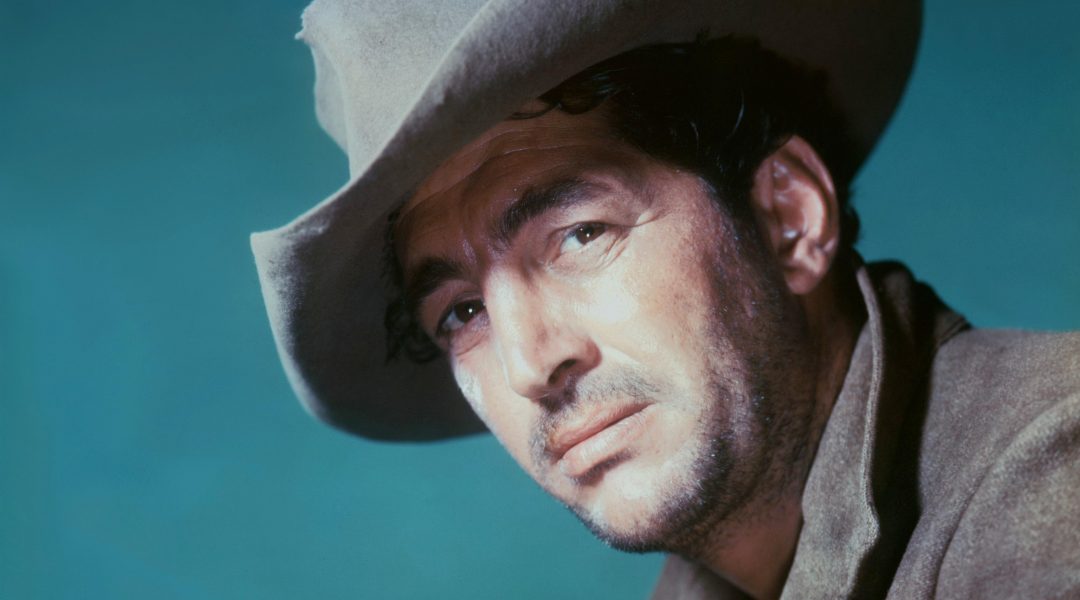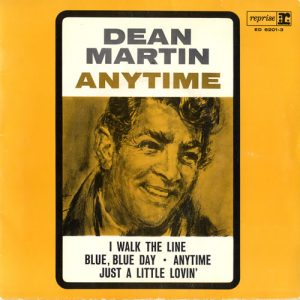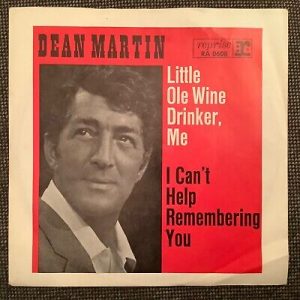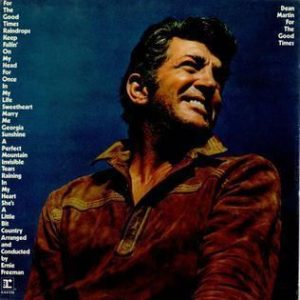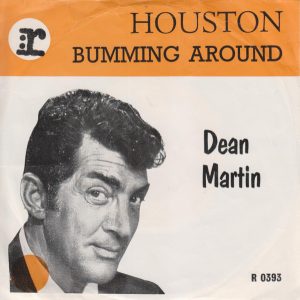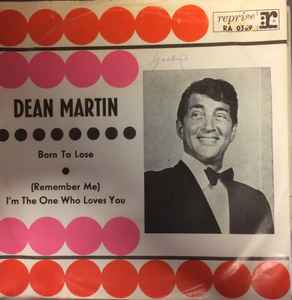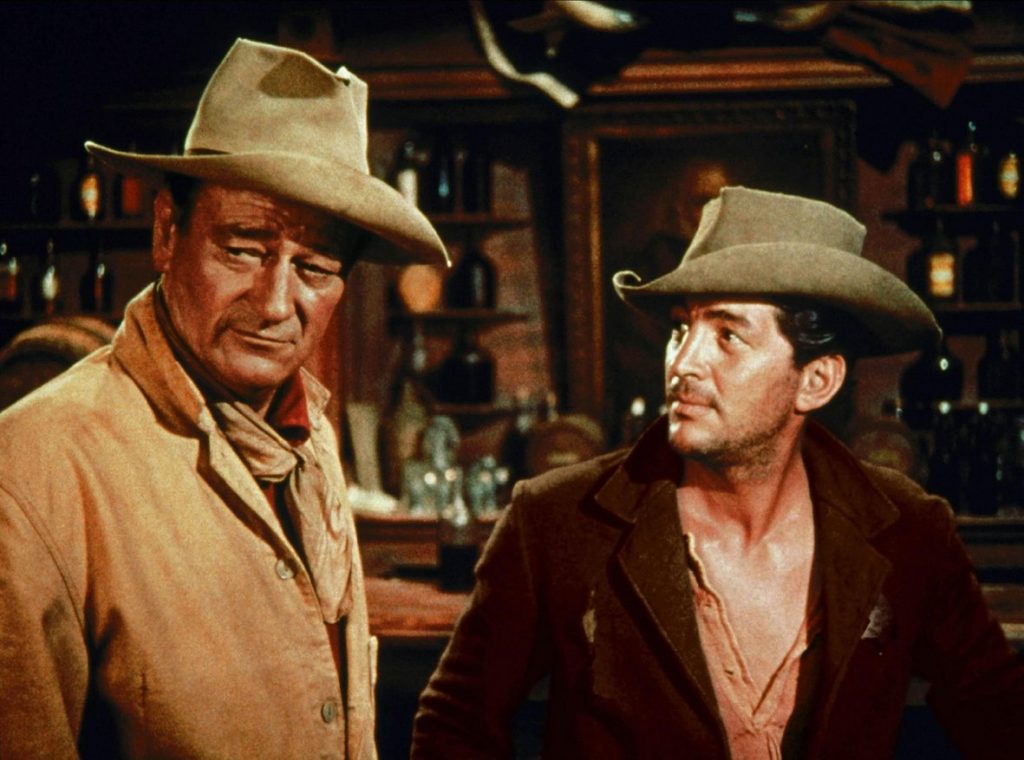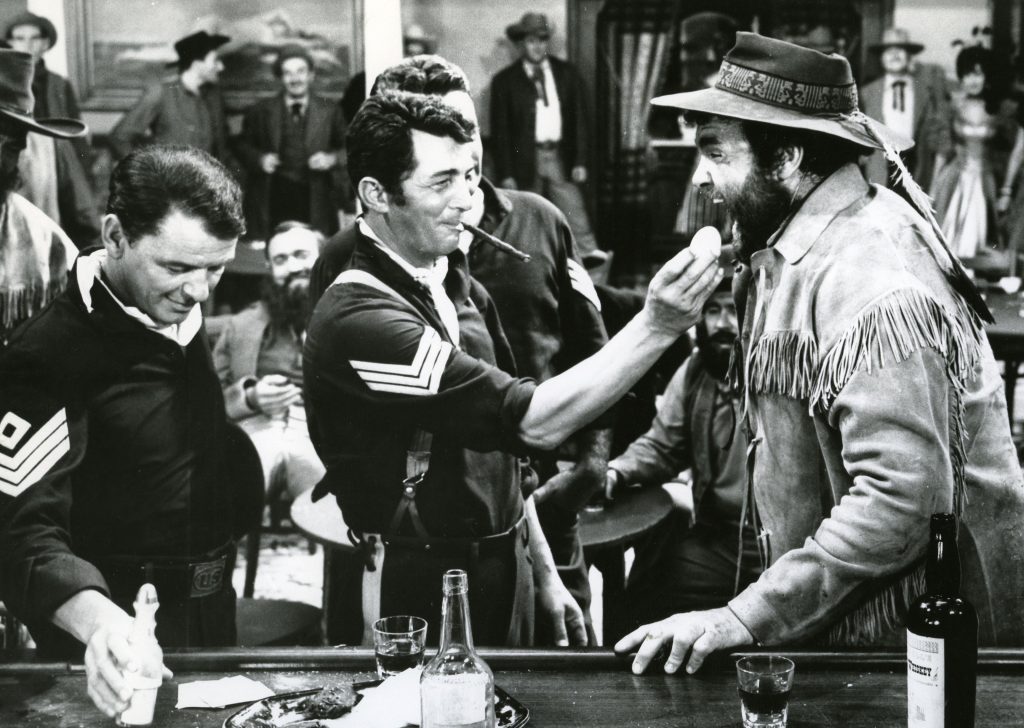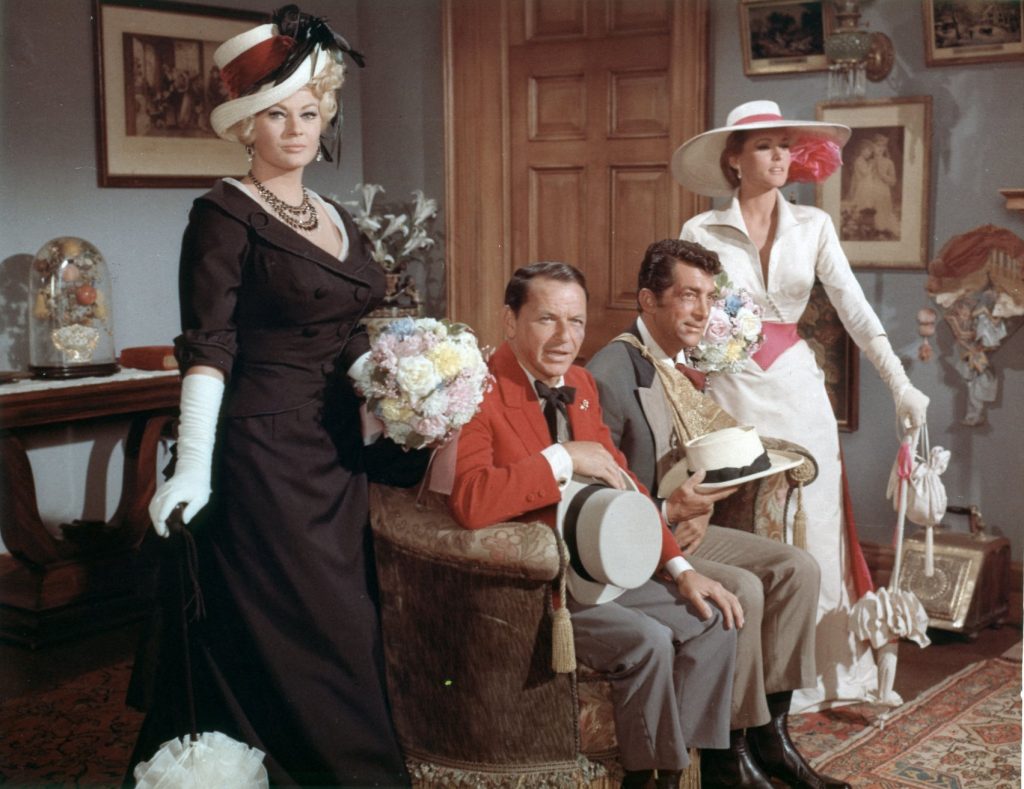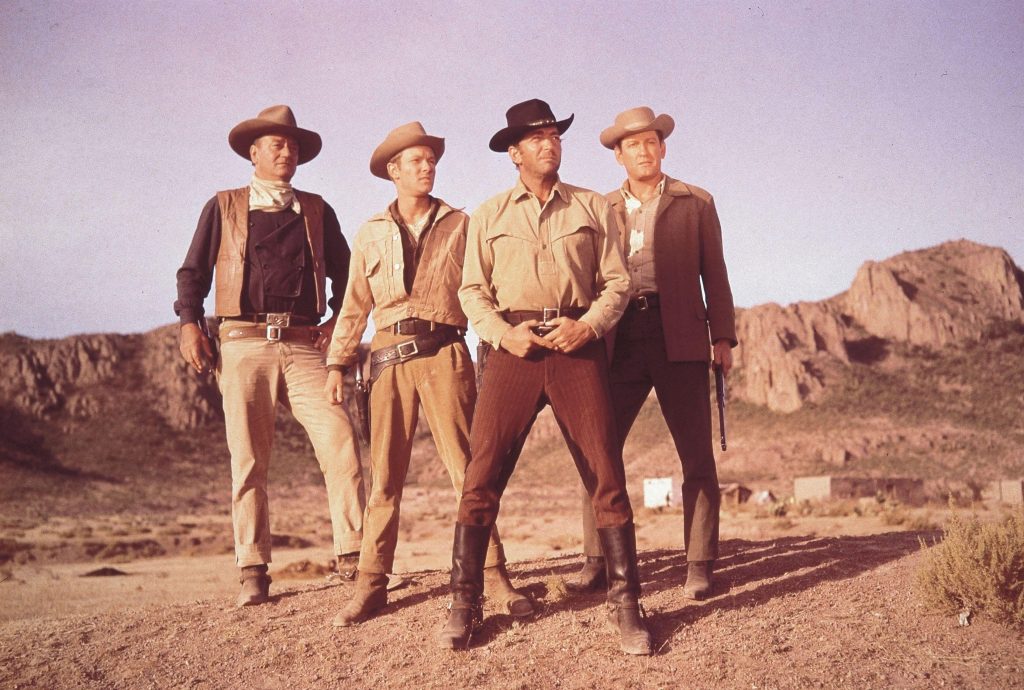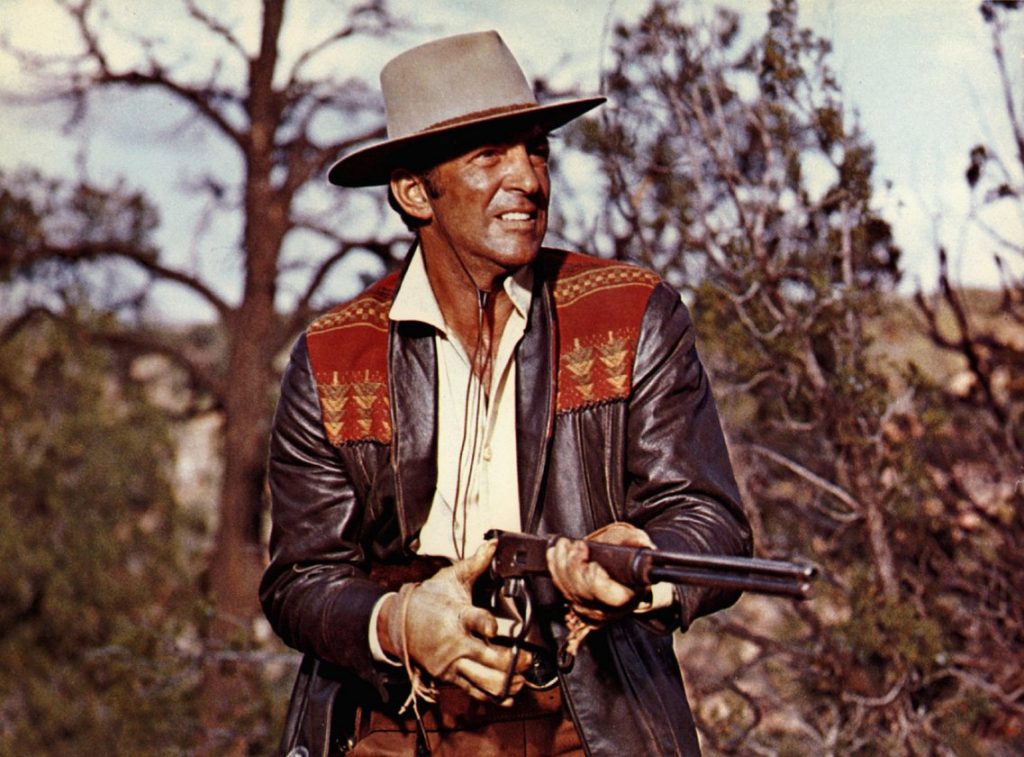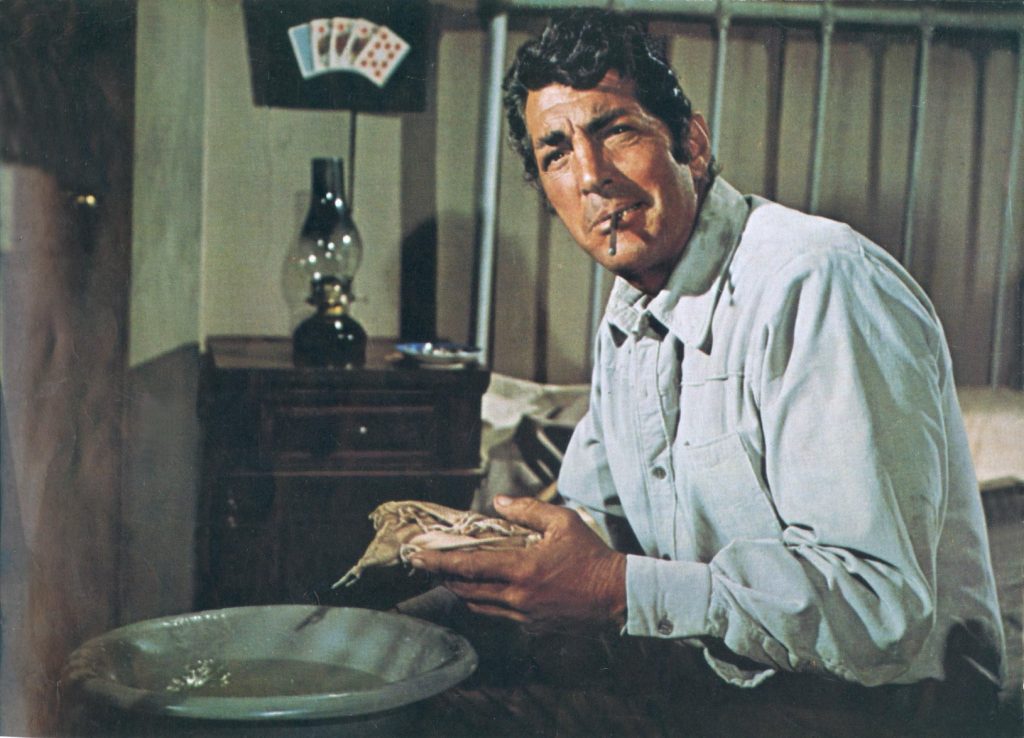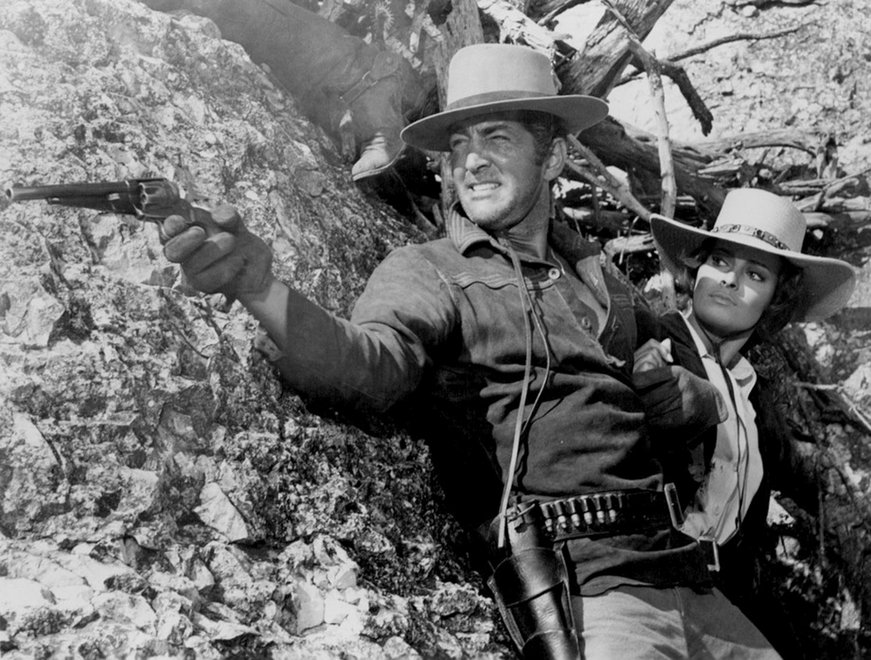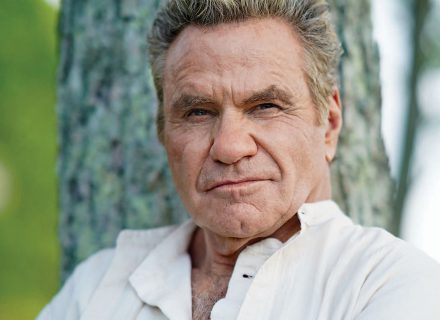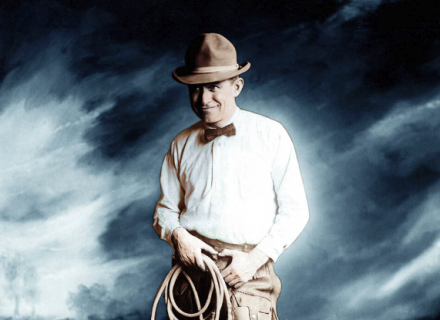One of music's coolest, classiest crooners isn't famous for country songs or cowboy movies — but he should be. Follow us through the life and legacy of Dean Martin.
Popular music experienced a seismic shift in the 1960s as the smooth sounds of artists like Pat Boone and Connie Francis gave way to The Beatles and The Rolling Stones. Singers who couldn’t adapt to “She Loves You (Yeah, Yeah, Yeah)” then turned to Nashville for material that felt more closely akin to the Great American Songbook.
A new genre emerging called Countrypolitan, and one of its originators, though he is rarely credited as such, was Dean Martin. Ten years before pop became rock, Martin had already recorded “Night Train to Memphis,” a hit for Roy Acuff. His second album, 1955’s Swingin’ Down Yonder, was comprised entirely of songs about life in the South.
Five Classic Country Tracks Of Dean Martin
“Any Time” (1963)
There’s not a bad track on Dean “Tex” Martin: Country Style, but the one that arguably had the most hit single potential was this lush remake of Eddy Arnold’s 1947 hit.
“Little Ole Wine Drinker Me” (1967)
Originally recorded by Charlie Walker, this song became an unlikely chart record for actor Robert Mitchum before Martin’s cover reached No. 38 on the Billboard pop chart. With playful lyrics perfectly suited to Martin’s (greatly exaggerated) reputation as a heavy drinker, the song became a staple of the singer’s nightclub act.
“For The Good Times” (1970)
This Kris Kristofferson composition, described by Kacey Musgraves as possibly “the saddest song of all time,” was a No. 1 country hit for Ray Price. If anything, Dean Martin’s version conveys an even greater sense of world-weary resignation at the end of a romance.
“Houston” (1965)
It’s still a mystery why Martin’s charismatic vocals on this Lee Hazlewood composition, which nearly made the Top 20 on the pop chart, never became a country hit as well.
“Born to Lose” (1965)
A typically sumptuous Jimmy Bowen production surrounds Dean Martin’s smooth baritone on yet another countrypolitan classic. “He did that one so beautifully,” Deana Martin recalls.
“I’m surprised that Dean Martin’s love of country songs isn’t better known, but I think that’s true of a lot of singers over the years who were turning to country music for good songs, even if they were recording those songs in a non-country style,” says Michael McCall, senior museum writer and editor for the Country Music Hall of Fame.
“He talked about country music all the time,” recalls Martin’s daughter Deana. “Country songs really appealed to him. When he would talk to me about it, he would say, ‘They just feel right, as if you’re singing from your soul.’”
Legions of fans will always remember Dean Martin best for songs like “Everybody Loves Somebody,” “That’s Amore,” “Sway,” and “Volare”; his laid-back cool; and his legendary Las Vegas shows with the Rat Pack. But the Italian boy, born Dino Paul Crocetti, from Steubenville, Ohio, must have always had some cowboy in him. He grew up thrilling to the movie adventures of Tom Mix and Allan “Rocky” Lane, and daughter Deana remembers that he was seldom happier than when he was watching westerns or appearing in them. “He relished the opportunity to take off the tuxedo and slip into jeans. … He was very comfortable in Western garb and on a horse.”
Country songs really appealed to him. When he would talk to me about it, he would say, 'They just feel right, as if you're singing from your soul. ~ Deana Martin
In 1963, Martin brought his love for country music to the forefront with two albums, Dean “Tex” Martin: Country Style and Dean “Tex” Martin Rides Again.
“He went from cutting the occasional country song to devoting entire albums to them, most written by Nashville songwriters like Don Gibson and Hank Williams,” McCall says. It was an aspect of Martin’s musical personality that also played well alongside his roles in westerns. He starred in 4 for Texas in 1963, after earning some of his most glowing reviews four years earlier in Rio Bravo. The duet he sang in that film with Ricky Nelson — “My Rifle, My Pony and Me” — may still be the country song with which he is most associated.
“I never met a finer man than Dean Martin,” wrote Country Music Hall of Famer Merle Travis in the liner notes of Dean “Tex” Martin Rides Again. “We country and western entertainers appreciate this sincere pat on the back and warm handshake to a kind of music which until just recently has had only regional acceptance.”
While he’d drop the “Tex” billing after 1963, there were country songs on almost every album Martin recorded over the next two decades, including “In the Misty Moonlight,” “Bouquet of Roses,” “Gentle on My Mind,” and “She’s a Little Bit Country.” He cut songs by Eddy Arnold and Hank Locklin in 1965. And Nashville contributions comprise much of his 1966 album Somewhere There’s a Someone.
“Country stars who were contemporaries of Martin’s — such as Ray Price and Eddy Arnold — listened to Martin’s recordings and, because of his influence, started recording with orchestras and began molding their country hits into a more cosmopolitan style,” McCall says. “In the 1960s, Price and Arnold began performing in tuxedos, a break with country music tradition but familiar stage wear for Martin, Frank Sinatra, and other crooners.”
Dean Martin's Best Westerns
Dean Martin may not be anyone’s first choice as an iconic cowboy hero, but the multitalented entertainer proved to be a dependable player in several westerns throughout his long career. He brought star power as Gurd Canliss in a 1964 episode of Rawhide. And he would more than hold his own in a full-length feature. Here are seven of his best westerns.
Rio Bravo (1959)
Martin earned his spurs as the hard-drinking former deputy of John Wayne’s Sheriff John T. Chance in Howard Hawks’ classic western. It’s a tense, straight-shooting drama, but Hawks allows time for some musical comedy relief as Martin’s character sings a couple of tunes with a crotchety old coot (Walter Brennan) and a gunslinger with a decidedly noncowboyish coiffure (Ricky Nelson).
Sergeants 3 (1962)
In this loose remake of George Stevens’ Gunga Din, the basic plot is transported from British India to the American West. Dino, Frank Sinatra, and Peter Lawford star as brawling U.S. Cavalry sergeants assigned to an Indian Territory outpost in 1970, and Sammy Davis Jr. appears as a trumpet-playing former slave who dreams of becoming a trooper.
4 for Texas (1963)
Robert Aldrich (The Dirty Dozen) directed this freewheeling wester comedy set in Galveston, Texas, about two rival couples — Martina and Anita Ekberg, Frank Sinatra and Ursula Andress — who must join forces to save Andress’ gambling boat from a corrupt banker (Victor Buono) and a murderous outlaw (Charles Bronson).
The Sons of Katie Elder (1965)
Martin partners again with John Wayne in Henry Hathaway’s enduringly popular and influential western about brothers who reunite for the funeral of their saintly mother — and uncover new clues in the mystery of their father’s violent death. Decades later, filmmaker John Singleton freely admitted to using this movie as a template for his own Four Brothers (2005).
Rough Night in Jericho (1967)
And now for something completely different: Martin is effectively cast against type as the villain, Alex Flood, a lawman gone bad while taking over the Wild West town of Jericho. George Peppard plays the unlikely hero, a lawman-turned-gambler who risks everything to take on Flood.
5 Cad Stud (1968)
As much a murder mystery, as a traditional western, director Henry Hathaway’s offbeat drama has the King of Cool cast as Van Morgan, an honest cowpoke who tries and fails to stop fellow poker players from lynching a card shark they catch cheating. Months later, Morgan returns to the scene of the crime after hearing that members of the lynch party are being murdered, one by one.
Bandolero! (1968)
Martin teams with James Stewart in director Andrew V. McLaglen’s action-packed shoot-’em-up. After Mace Bishop (Stewart) saves his brother Dee (Martin) from the gallows, the brothers and their gang hightail-it out of town with a hostage: Maria (Raquel Welch), the beautiful widow of a wealthy rancher Dee killed during a robbery.
These singers would also appear on Dean Martin’s long-running variety show, which featured a segment devoted to country music. “He loved performing with guest stars like Glen Campbell and Charley Pride,” Deana Martin says. “He could sing with anybody. His show was a great venue for these artists and brought them more exposure as well.”
Martin’s final album, 1983’s The Nashville Sessions, reunited him with producer Jimmy Bowen, who had produced his 1963 Dean “Tex” Martin albums. It was Martin’s only album recorded in Nashville and after 30 years finally gave him a song that made the country chart: “My First Country Song,” a duet with Conway Twitty, peaked at No. 35.
“Unlike his previous records, this time the musical arrangements were exactly what country music sounded like at the time,” McCall says. “I don’t know if anyone expected the album to include a string of top radio hits, but you can tell the musicians and everyone involved gave it their best.”
In 2006, more than 20 years after Martin’s death, Martina McBride added her vocals to Dean Martin’s cover of “Baby It’s Cold Outside,” which became his second Top 40 country song and a Top 10 hit in Canada. It was a fitting coda to a legacy that was never acknowledged as it should have been, but one that is still gaining new fans.
This article appeared in our May/June 2023, available on newsstands and through our C&I Shop now.







